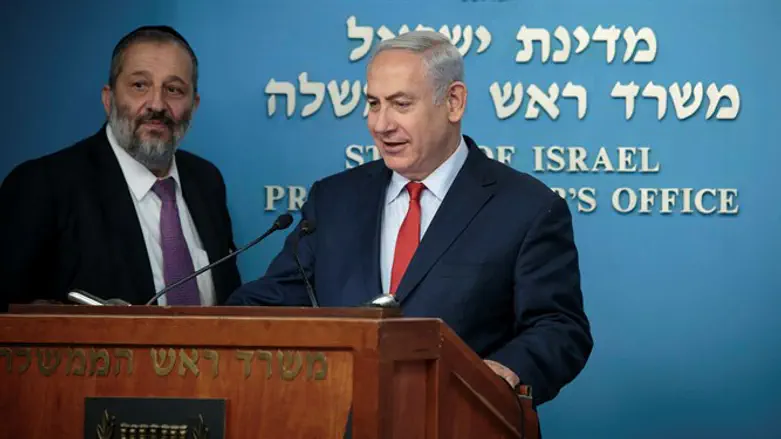
Israel on Monday agreed to a compromise regarding the illegal infiltrators.
The compromise was made with the United Nations High Commissioner for Refugees, who said they would work to bring at least 16,250 of the infiltrators to Western countries, on condition that Israel grant visas to the rest of the infiltrators.
The agreement claims that most of those who will remain would have remained anyways, due to their "status" as a "protected population."
The infiltrators claim to be refugees, but investigations show that very few would be in danger if returned to their home countries, and most of them did in fact arrive in Israel seeking employment.
This agreement is said to remove a greater number of infiltrators than the previous plan, and it affords Israel international and UN backing.
The Prime Minister's Office said that the UN plan is divided into three sections, and will take up to five years. When the process is complete, the lives of those living in southern Tel Aviv will be "significantly" improved.
Attorney General Avichai Mandelblit also approved the deal, which is in line with the accepted interpretation of international law and policy.
A new administration for rehabilitation southern Tel Aviv will be established, and it will include representatives from the Tel Aviv municipality, as well as neighborhood representatives. The money intended to implement and enforce the law will instead be invested into developing and rehabilitating the neighborhoods of southern Tel Aviv.
In addition, the UN agreement includes efforts on Israel's part to encourage the infiltrators to move to different areas of the country, as well as aid in finding employment, occupational training, aid in finding appropriate jobs, and other things.
Since Israel and the UN will be working together, there will be no need to force the infiltrators to leave to a third country.
Israel's previous plan offered the nearly 40,000 male, unmarried infiltrators, who entered Israel illegally, the opportunity to leave voluntarily before the end of March and receive $3500 compensation. enough to live on for as long as a year in the countries which agreed to accept them and to which they are to be flown. The majority of Israelis supported this plan.
However, the Supreme Court reneged on its previous approval of the plan, freezing it on March 15.
"Israeli Prime Minister Binyamin Netanyahu and Interior Minister Aryeh Deri (Shas) pushed for this initiative earlier, but due to legal and political difficulties from the third countries, we needed to arrive at new and improved understandings that would ensure the continuation of the removal of thousands of infiltrators to Israel, while providing an overall solution to the issue," the Prime Minister's Office said.
In September, Netanyahu said the infiltrators "do not have a right to be here, they do not have to be here, and with our combined efforts here, a portion of them will not be."
Last year, an infiltrator from Tel Aviv arriving in southern Israel raped a local young woman, locked her in an empty apartment, and sat smoking marijuana until he decided to leave. The young woman reported the issue to the local police station, who arrested and interrogated the infiltrator.
